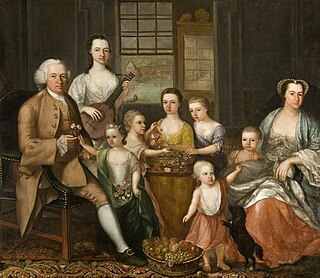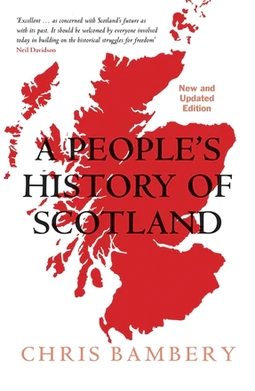
The Atlantic slave trade or transatlantic slave trade involved the transportation by slave traders of enslaved African people to the Americas. European slave ships regularly used the triangular trade route and its Middle Passage. Europeans established a coastal slave trade in the 15th century and trade to the Americas began in the 16th century, lasting through the 19th century. The vast majority of those who were transported in the transatlantic slave trade were from Central Africa and West Africa and had been sold by West African slave traders to European slave traders, while others had been captured directly by the slave traders in coastal raids. European slave traders gathered and imprisoned the enslaved at forts on the African coast and then brought them to the Americas. Some Portuguese and Europeans participated in slave raids. As the National Museums Liverpool explains: "European traders captured some Africans in raids along the coast, but bought most of them from local African or African-European dealers." Many European slave traders generally did not participate in slave raids because life expectancy for Europeans in sub-Saharan Africa was less than one year during the period of the slave trade because of malaria that was endemic in the African continent. Portuguese coastal raiders found that slave raiding was too costly and often ineffective and opted for established commercial relations.

Henry Dundas, 1st Viscount Melville, PC, FRSE, styled as Lord Melville from 1802, was the trusted lieutenant of British prime minister William Pitt and the most powerful politician in Scotland in the late 18th century.

Slavery in medieval Europe was widespread. Europe and North Africa were part of an interconnected trade network across the Mediterranean Sea, and this included slave trading. During the medieval period (500–1500), wartime captives were commonly forced into slavery. As European kingdoms transitioned to feudal societies, a different legal category of unfree persons – serfdom –began to replace slavery as the main economic and agricultural engine. Throughout medieval Europe, the perspectives and societal roles of enslaved peoples differed greatly, from some being restricted to agricultural labor to others being positioned as trusted political advisors.

Slavery in the British and French Caribbean refers to slavery in the parts of the Caribbean dominated by France or the British Empire.

The Tobacco Lords were a group of Scottish merchants active during the Georgian era who made substantial sums of money via their participation in the triangular trade, primarily through dealing in slave-produced tobacco that was grown in the Thirteen Colonies. Concentrated in the port city of Glasgow, these merchants utilised their fortunes, which were also partly made via the direct ownership of slaves, to construct numerous townhouses, churches and other buildings in Scotland.

Slavery in Georgia is known to have been practiced by European colonists. During the colonial era, the practice of slavery in Georgia soon became surpassed by industrial-scale plantation slavery.

Slavery has historically been widespread in Africa. Systems of servitude and slavery were once commonplace in parts of Africa, as they were in much of the rest of the ancient and medieval world. When the trans-Saharan slave trade, Red Sea slave trade, Indian Ocean slave trade and Atlantic slave trade began, many of the pre-existing local African slave systems began supplying captives for slave markets outside Africa. Slavery in contemporary Africa is still practised in some parts despite it being illegal.

Jewish views on slavery are varied both religiously and historically. Judaism's ancient and medieval religious texts contain numerous laws governing the ownership and treatment of slaves. Texts that contain such regulations include the Hebrew Bible, the Talmud, the 12th-century Mishneh Torah by Rabbi Moses ben Maimon, also known as Maimonides, and the 16th-century Shulchan Aruch by Rabbi Yosef Karo.

Slavery in Britain existed before the Roman occupation, which occurred from approximately AD 43 to AD 410, and the practice endured in various forms until the 11th century, during which the Norman conquest of England resulted in the gradual merger of the pre-conquest institution of slavery into serfdom in the midst of other economic upheavals. Given the widespread socio-political changes afterwards, all slaves were no longer recognised separately than other individuals in either English law or formal custom. By the middle of the 12th century, the institution of slavery as it had existed prior to the Norman conquest had fully disappeared, but other forms of unfree servitude continued for some centuries.

George Donisthorpe Thompson was a British anti-slavery orator and activist who toured giving lectures and worked for legislation while serving as a Member of Parliament. He was arguably one of the most important abolitionists and human rights lecturers in the United Kingdom and the United States.

The Igbo of Igboland became one of the principal ethnic groups to be enslaved during the Atlantic slave trade. An estimated 14.6% of all enslaved people were taken from the Bight of Biafra, a bay of the Atlantic Ocean that extends from the Nun outlet of the Niger River (Nigeria) to Limbe (Cameroon) to Cape Lopez (Gabon) between 1650 and 1900. The Bight’s major slave trading ports were located in Bonny and Calabar.

The Danish slave trade occurred separately in two different periods: the trade in European slaves during the Viking Age, from the 8th to 10th century; and the Danish role in selling African slaves during the Atlantic slave trade, which commenced in 1733 and ended in 1807 when the abolition of slavery was announced. The location of the latter slave trade primarily occurred in the Danish West Indies where slaves were tasked with many different manual labour activities, primarily working on sugar plantations. The slave trade had many impacts that varied in their nature, with some more severe than others. After many years of slavery in the Danish West Indies, Christian VII decided to abolish slave trading.

A scramble was a particular form of slave auction that took place during the Atlantic slave trade in the European colonies of the West Indies and the domestic slave trade of the United States. It was called a "scramble" because buyers would run around in an open space all at once to gather as many enslaved people as possible. Another name for a scramble auction is "Grab and go" slave auctions. Slave ship captains would go to great lengths to prepare their captives and set prices for these auctions

Abolitionism in the United Kingdom was the movement in the late 18th and early 19th centuries to end the practice of slavery, whether formal or informal, in the United Kingdom, the British Empire and the world, including ending the Atlantic slave trade. It was part of a wider abolitionism movement in Western Europe and the Americas.

The Atlantic slave trade to Brazil occurred during the period of history in which there was a forced migration of Africans to Brazil for the purpose of slavery. It lasted from the mid-sixteenth century until the mid-nineteenth century. During the trade, more than three million Africans were transported across the Atlantic and sold into slavery. It was divided into four phases: The cycle of Guinea ; the cycle of Angola which trafficked people from Bakongo, Mbundu, Benguela, and Ovambo; cycle of Costa da Mina, now renamed Cycle of Benin and Dahomey, which trafficked people from Yoruba, Ewe, Minas, Hausa, Nupe, and Borno; and the illegal trafficking period, which was suppressed by the United Kingdom (1815–1851). During this period, to escape the supervision of British ships enforcing an anti-slavery blockade, Brazilian slave traders began to seek alternative routes to the routes of the West African coast, turning to Mozambique.
Robert was built in Brazil in 1797 and first appeared in Lloyd's Register in 1805. She made two slave trading voyages in the triangular trade in enslaved people. A French privateer captured her in a single-ship action in 1808 on her second voyage.

The first Leith Sugar House was established in 1677 by Robert Douglas and partners. Between 1667 and 1701 four sugar boiling and rum-distilling enterprises were established in Scotland, three in Glasgow and one in Leith. The financial success of the Leith Sugar house in the seventeenth and eighteenth century demonstrates Edinburgh's economic connection to the Atlantic economy and enslaved labour.

A People's History of Scotland is a 2014 book by Chris Bambery.

Slavery in the British American colonies was an institution that was brought into existence by traders and operated from the cities of Bristol and Liverpool and was conducted within locations on the northern part of South America through the West Indies and on the North American mainland. Many colonies saw slavery from the colony of British Guiana, Barbados, Jamaica, the Thirteen Colonies, and also Canada. Slavery across every part of colonial America under British control was abolished in 1833.













